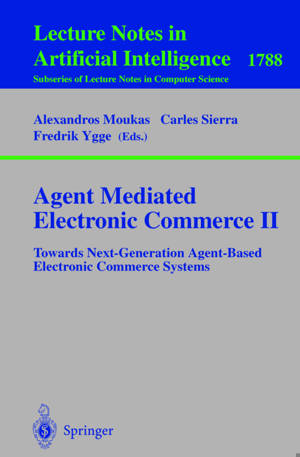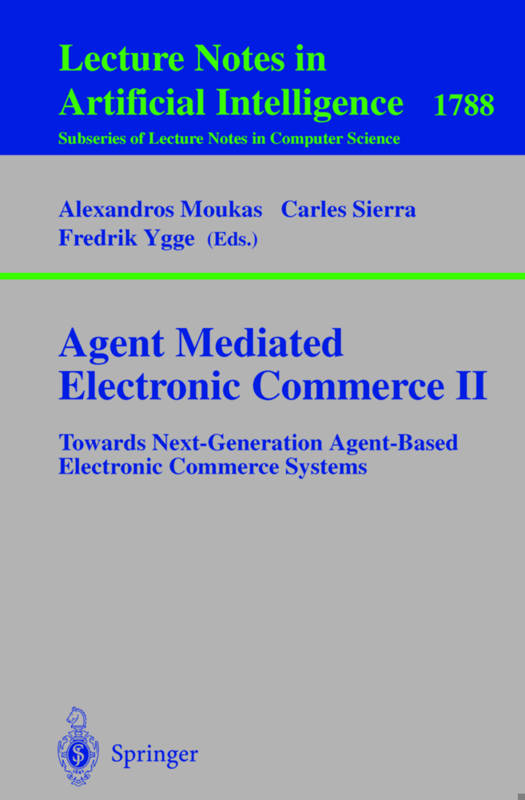
Bedankt voor het vertrouwen het afgelopen jaar! Om jou te bedanken bieden we GRATIS verzending (in België) aan op alles gedurende de hele maand januari.
- Afhalen na 1 uur in een winkel met voorraad
- In januari gratis thuislevering in België
- Ruim aanbod met 7 miljoen producten
Bedankt voor het vertrouwen het afgelopen jaar! Om jou te bedanken bieden we GRATIS verzending (in België) aan op alles gedurende de hele maand januari.
- Afhalen na 1 uur in een winkel met voorraad
- In januari gratis thuislevering in België
- Ruim aanbod met 7 miljoen producten
Zoeken
Agent Mediated Electronic Commerce II
Towards Next-Generation Agent-Based Electronic Commerce Systems
Paperback | Engels | Lecture Notes in Computer Science | Lecture Notes in Artificial Intelligence | nr. 1788
€ 88,45
+ 176 punten
Omschrijving
The Internet is spawning many new markets and electronic commerce is changing many market conventions. Not only are old commercial practices being adapted to the new conditions of immediacy brought forth by the global networks, but new products and services, as well as new practices, are beginning to appear. There is already ample evidence that agent-based technologies will be crucial for these - velopments. However many theoretical, technological, sociological, and legal - pects will need to be addressed before such opportunities become a significant reality. In addition to streamlining traditional transactions, agents enable new types of transactions. For example, the elusive one-to-one marketing becomes more of a - ality when consumer agents capture and share (or sell) consumer demographics. Prices and other transaction dimensions need no longer to be fixed; selling agents can dynamically tailor merchant offerings to each consumer. Economies of scale become feasible in new markets when agents negotiate on special arbitration c- tracts. Dynamic business relationships will give rise to more competitively agile organizations. It is these new opportunities combined with substantial reduction in transaction costs that will revolutionize electronic commerce.
Specificaties
Betrokkenen
- Uitgeverij:
Inhoud
- Aantal bladzijden:
- 242
- Taal:
- Engels
- Reeks:
- Reeksnummer:
- nr. 1788
Eigenschappen
- Productcode (EAN):
- 9783540677734
- Verschijningsdatum:
- 26/07/2000
- Uitvoering:
- Paperback
- Formaat:
- Trade paperback (VS)
- Afmetingen:
- 156 mm x 234 mm
- Gewicht:
- 362 g

Alleen bij Standaard Boekhandel
+ 176 punten op je klantenkaart van Standaard Boekhandel
Beoordelingen
We publiceren alleen reviews die voldoen aan de voorwaarden voor reviews. Bekijk onze voorwaarden voor reviews.








